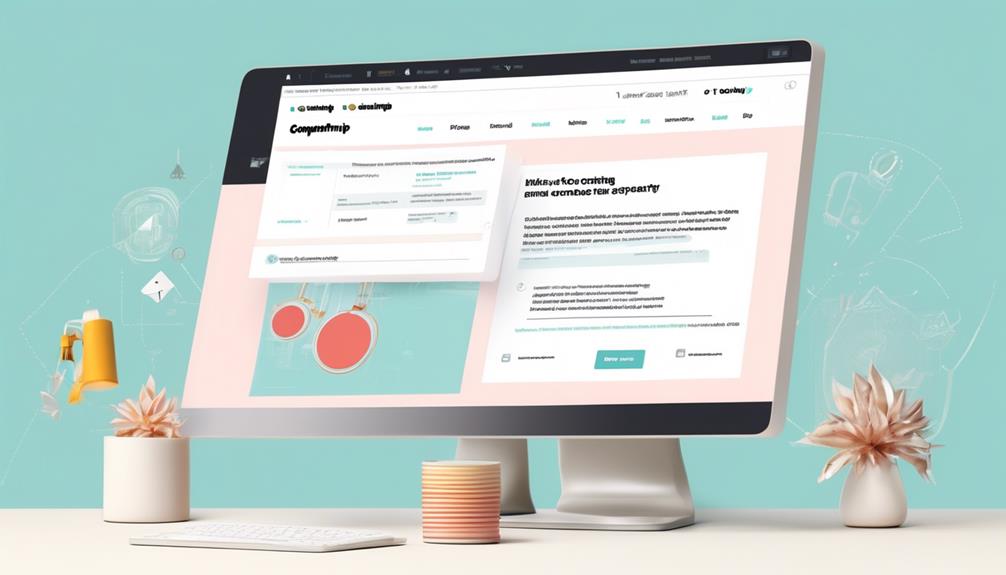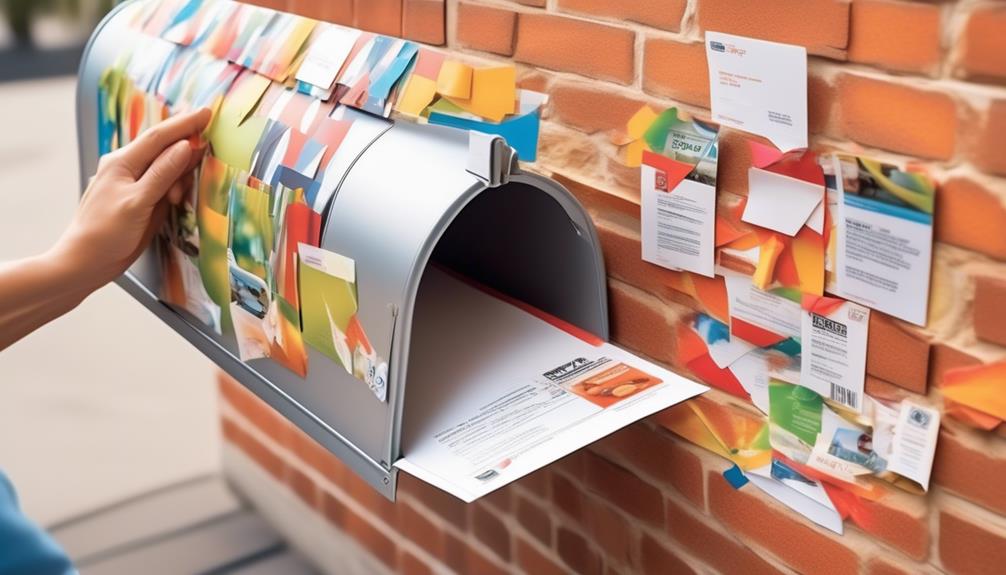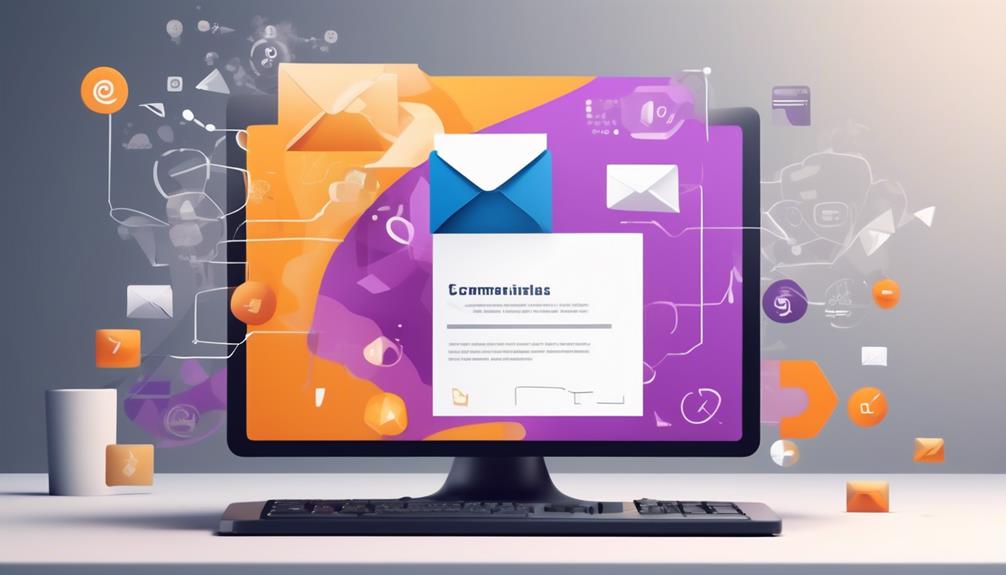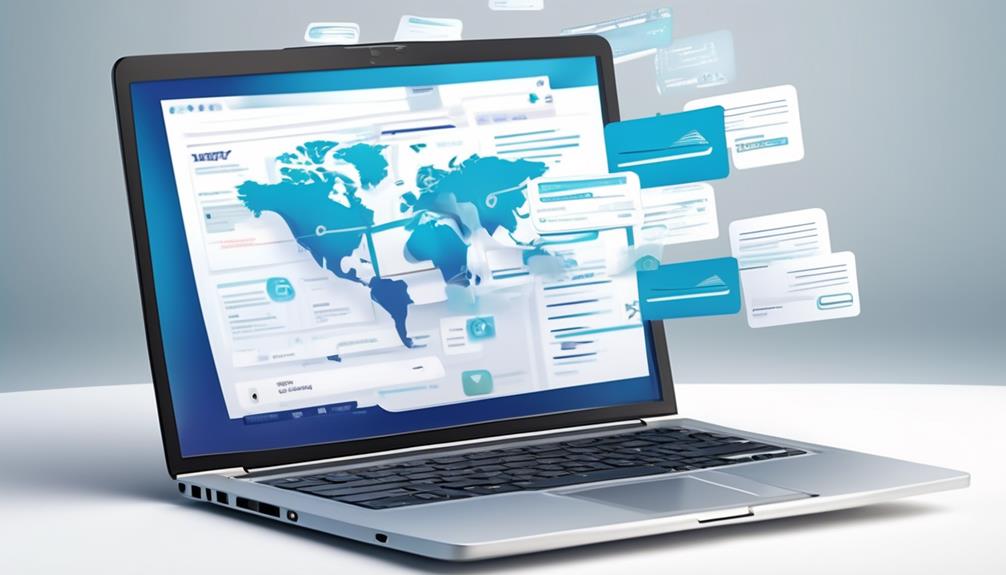We have all experienced the thrill of unwrapping a perfectly wrapped gift. It’s like uncovering a mystery filled with possibilities and surprises.
Email marketing works in a similar way, offering businesses a chance to package their messages in a way that captivates and entices their audience.
But what exactly is email marketing, and how can it be used effectively to drive business growth? Let’s explore this powerful tool and uncover the strategies behind successful email marketing campaigns.
Key Takeaways
- Email marketing is a direct and digital marketing channel that promotes products or services.
- Personalized messages and marketing automation are crucial for engaging the target audience and driving conversions.
- Monitoring email deliverability rates and optimizing email content through A/B testing are essential for success.
- Email marketing includes various types of emails such as promotional, newsletter, transactional, survey, and seasonal emails.
Definition of Email Marketing
We define email marketing as a direct and digital marketing channel that utilizes email to promote our business’s products or services. It serves as a powerful tool for reaching out to customers and prospects, fostering customer engagement, and building brand awareness.
Email marketing platforms enable us to send personalized messages, ensuring that our communications resonate with our target audience. By leveraging marketing automation, we can streamline the process of reaching customers at the right time with the right content, leading to successful email marketing campaigns.
Additionally, monitoring email deliverability rates is crucial to ensure that our messages reach the intended recipients. Through various types of marketing emails, such as promotional, survey, seasonal, and transactional, we can cater to different customer needs and preferences.
Advantages and Disadvantages
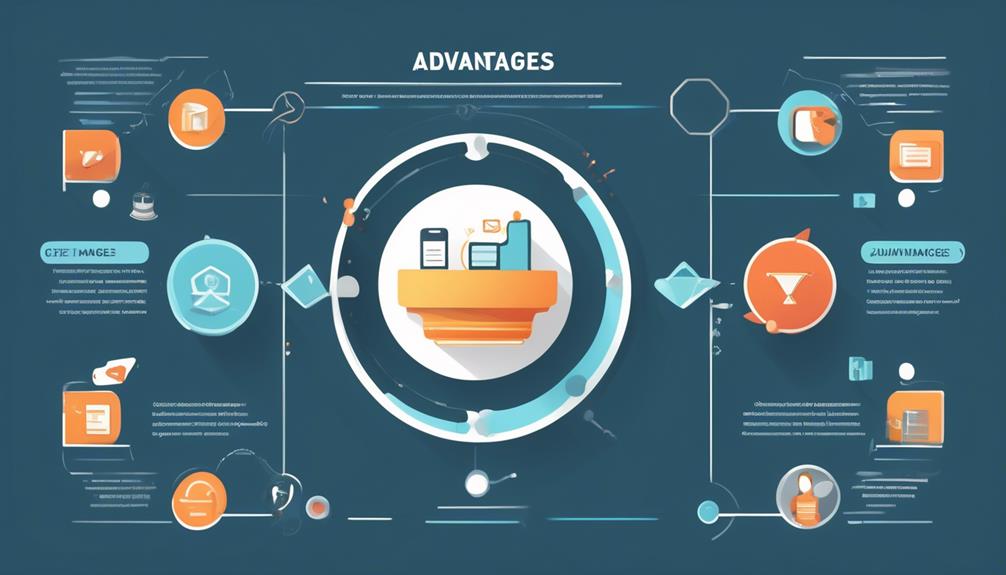
What are the key advantages and disadvantages of implementing email marketing campaigns for businesses?
- Advantages:
- Email marketing is a powerful tool for building relationships with customers, enhancing customer loyalty, and driving traffic to websites or social media platforms.
- The ability to segment emails enables businesses to target specific demographics, delivering more personalized and relevant content to potential customers.
- A/B testing allows for the optimization of email content, helping to improve open rates and overall campaign effectiveness.
- Disadvantages:
- Spam filters and high competition can result in emails being ignored or marked as junk, impacting open rates and engagement.
- Large file sizes in emails can lead to slow loading times and a loss of interest from potential customers.
- Ensuring consistent engagement and preventing high unopened rates or unsubscribes require ongoing effort and attention.
Implementing email marketing can be beneficial for achieving marketing goals, building relationships, and generating a strong return on investment. However, businesses must also be mindful of the potential drawbacks, such as competition, spam filters, and the need for continuous engagement efforts, in order to effectively leverage this marketing channel.
Types of Marketing Emails
After exploring the advantages and disadvantages of implementing email marketing campaigns, it’s essential to understand the various types of marketing emails used to engage with customers and drive business growth.
Promotional emails play a crucial role in advertising products or services to a broad audience, often featuring special offers or new releases.
Newsletter emails are designed to provide subscribers with regular updates, news, and valuable content related to the business, maintaining consistent engagement and enhancing customer loyalty.
Transactional emails, such as order confirmations or shipping updates, facilitate customer interactions and provide essential information related to their purchases, contributing to a positive customer experience.
Survey emails aim to gather feedback from customers, enabling businesses to improve their offerings and understand customer preferences, ultimately enhancing their marketing efforts.
Seasonal marketing emails are aligned with holidays or special events, promoting sales, exclusive offers, and limited-time promotions, thereby creating a sense of urgency and driving customer engagement.
Understanding the different types of marketing emails allows businesses to strategically plan their email campaigns, ensuring effective communication with their audience and maximizing the impact of their marketing efforts.
Successful Email Marketing Campaign Examples
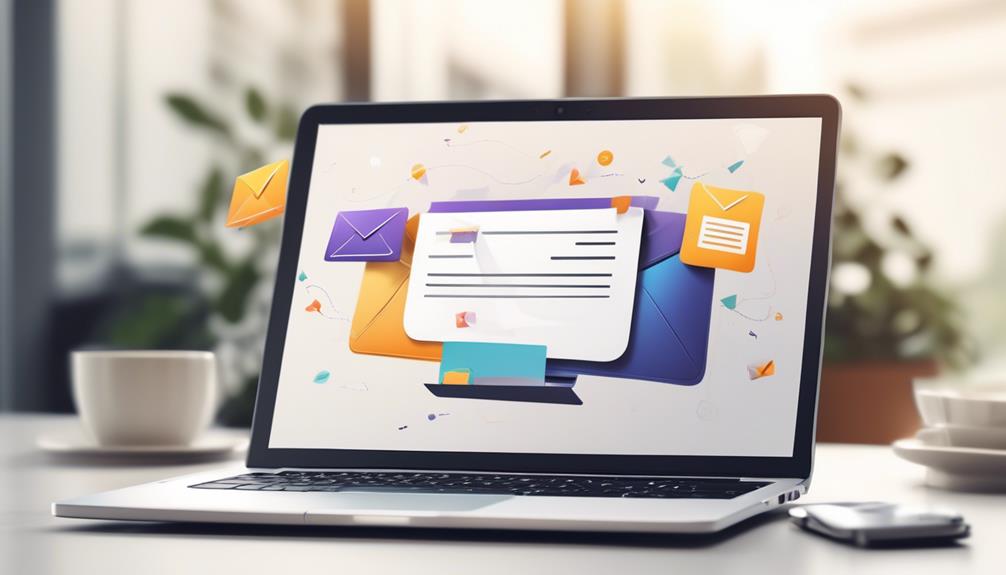
In today’s competitive digital landscape, successful email marketing campaigns exemplify the power of personalized, visually appealing content and strategic storytelling to engage and convert customers.
Here are some successful email marketing campaign examples:
- UBER: UBER’s email marketing strategy is tailored for busy readers, featuring catchy subject lines, quick descriptions, and clear calls-to-action (CTAs). This approach efficiently captures attention and drives customer engagement.
- Dropbox: Dropbox effectively re-engages users through visually appealing emails containing cute images and short, sweet messages. This strategy not only enhances brand recall but also fosters customer loyalty.
- Airbnb: Airbnb’s personalized email recommendations and visually appealing images enhance the customer experience and drive conversions. By leveraging personalized content, Airbnb builds stronger connections with its audience, resulting in higher open rates and increased customer loyalty.
These examples demonstrate how successful email marketing campaigns can significantly impact a brand’s marketing strategy. By understanding the effectiveness of personalized content, visually appealing designs, and strategic storytelling, businesses can elevate their email marketing efforts to boost open rates, engagement, and conversions. Leveraging the expertise of an email service provider can further optimize these strategies for maximum impact.
Tips for Effective Email Marketing
Crafting personalized and visually appealing content is essential for effective email marketing campaigns. To help build customer loyalty at every email open, here are some best practices and tips to help you master email marketing.
Firstly, automate your email marketing to ensure timely and relevant communication with your audience. Utilize customer data and segmentation to send marketing emails that are tailored to individual preferences and behaviors.
Additionally, pay attention to email frequency; bombarding subscribers with emails can lead to unsubscribes, while infrequent communication may cause them to forget about your brand. It’s crucial to strike a balance and test different frequencies to determine the optimal schedule for your audience.
Furthermore, optimize your emails for mobile devices, as a significant percentage of users access their emails on smartphones.
Finally, always include clear and compelling calls to action (CTAs) to drive conversions.
Frequently Asked Questions
What Is Email Marketing and Its Examples?
Email marketing is a powerful tool for reaching potential customers and nurturing existing ones. It allows us to send targeted messages directly to people’s inboxes, promoting products, services, or brand awareness. By integrating with marketing automation, it plays a crucial role in lead generation.
Examples of successful campaigns include UBER, Dropbox, Airbnb, Spotify, and Nike. Crafting effective email marketing involves building opt-in lists and complying with regulations to ensure ethical and successful engagement.
What Are the 4 Types of Email Marketing?
We’ve found that the four types of email marketing are newsletters, offers, announcements, and event invitations. Each type serves a specific purpose, like nurturing existing customer relationships with regular updates or driving engagement through promotional offers.
Our data shows that newsletters are particularly effective for customer retention, while event invitations are great for increasing brand awareness and driving event registrations. These types of email campaigns can significantly impact engagement and conversions.
What Is an Example of a Business Using Email Marketing?
Sure,
An example of a business effectively using email marketing is UBER. They send simple, catchy, and consistent emails designed for busy readers. This approach helps them engage with their audience and drive action.
What Is Email Marketing for Beginners?
Email marketing for beginners is a powerful tool for engaging potential customers. It allows us to reach a wide audience, with 3.9 billion users worldwide, and has an impressive ROI of 4200%.
We can create personalized, targeted content using segmentation and automation, making our messages more relevant. By focusing on building relationships and providing value, we can nurture leads and drive sales, even with a limited budget.
Conclusion
In conclusion, email marketing is the key to unlocking the door to your customer’s hearts.
By crafting compelling emails, businesses can build meaningful relationships and drive sales.
Just like a carefully tailored outfit, a well-crafted email can make all the difference.
So, don’t underestimate the power of email marketing – it’s the stylish accessory your business needs to stand out in the crowd.

